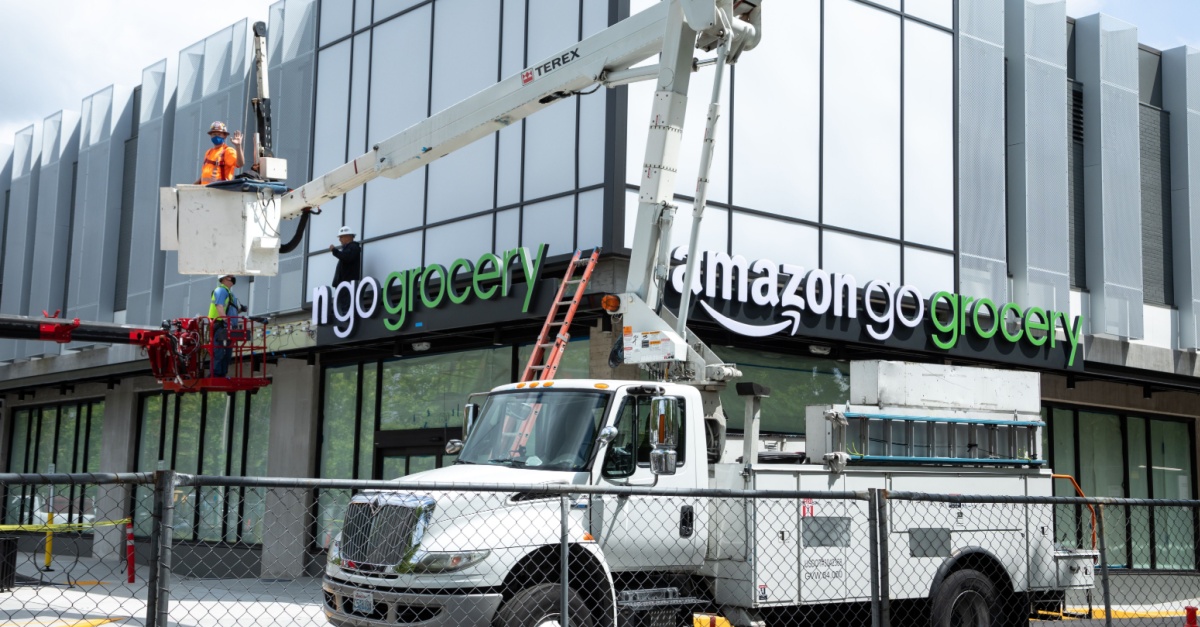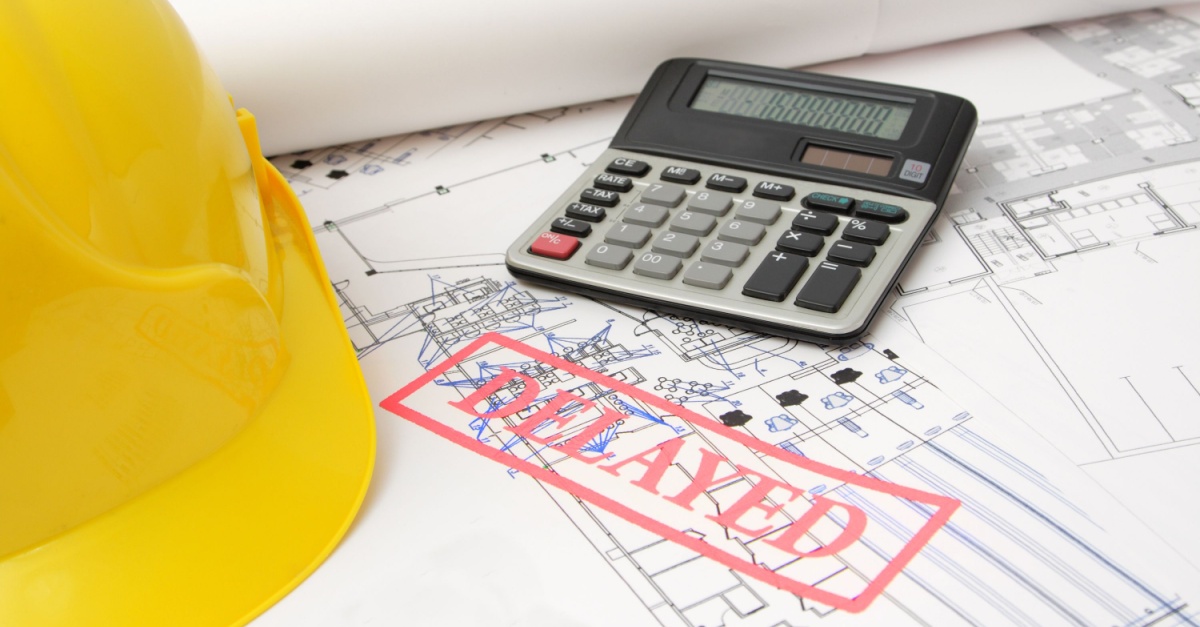
Keeping Up With the Times: Innovative Retail Construction Trends for 2025
May 30, 2025
Retail construction in 2025 is evolving at record speed, fueled by groundbreaking technologies, new regulatory demands, and heightened sustainability goals. From coast to coast, major retail brands are shifting how they approach both new builds and remodels — focusing on efficiency, environmental impact, and long-term adaptability. For decision-makers in facilities, construction, real estate, and operations, this moment presents an opportunity to lead with innovation.
In this article, we explore five of the most impactful retail construction trends shaping the industry today. Backed by emerging data and real-world examples, these trends offer executives clear, actionable guidance to stay competitive in a fast-changing market.
Trend 1: Advancements in Construction Technology (AI, 3D Printing and Robotics)
Retail construction is rapidly evolving, driven by cutting-edge technologies like AI, robotics, 3D printing, and VR/AR. AI tools now forecast delays and optimize timelines using real-time data, while robots handle repetitive tasks like bricklaying and painting, improving both speed and safety. 3D printing is accelerating build times — Walmart completed 3D-printed expansion walls in just 75 hours, cutting the schedule nearly in half. Meanwhile, VR and AR are revolutionizing project planning, enabling teams to catch design issues early through immersive walkthroughs and real-time overlays on-site.
These tools help reduce costly mid-project changes and provide opportunities for early stakeholder feedback, making them essential for complex retail construction projects in 2025. For forward-thinking facility and construction leaders, embracing this tech isn’t just smart — it’s becoming the standard.
Trend 2: Modular and Off-Site Construction Accelerating Build-Outs
Launching new locations or remodeling at scale is pushing retailers to adopt modular and off-site construction — one of 2025’s biggest retail construction trends. By building store sections in factories and assembling them quickly on-site, brands can reduce timelines by up to 50% and cut costs by as much as 20%. This approach also keeps projects moving despite labor shortages or weather delays. Modular builds minimize disruption, making them ideal for retrofits in active retail environments.
Adoption is accelerating across sectors: Fast food chains, big box stores, and grocers now use prefab drive-throughs and shells to shrink on-site build times to just weeks. Retailers like Dollar General are leveraging modular methods to speed up rural growth. As this trend scales, construction partners offering off-site capabilities are becoming strategic allies in helping brands open faster and control costs more precisely.
Trend 3: Sustainability Mandates and Green Building Practices
Sustainability is now a driving force behind innovation in retail construction. In 2025, evolving green mandates are reshaping how companies approach both new builds and renovations. From coast to coast, stricter codes, energy-efficiency standards, and carbon reporting laws are making eco-conscious building design not just smart but required. Retail construction services must now integrate sustainable materials, net-zero-ready systems, and climate-resilient features from day one.
Certifications like LEED and BREEAM are becoming industry norms as developers aim to meet both regulatory targets and consumer demand. Green practices in retail construction also provide measurable ROI. LEED-certified buildings can achieve energy savings of up to 30-40% compared to conventional structures. These practices lower long-term operating costs while boosting ESG credibility. Target is pursuing LEED certification for numerous new stores, while Walmart is installing solar panels across hundreds of locations in its push toward 100% renewable energy. Forward-thinking leaders are embracing this shift as a strategic edge, not just a compliance box to check.
Trend 4: Smart Building Integrations (IoT-Enabled Stores and Infrastructure)
Smart building technology is foundational to modern retail construction in 2025. IoT sensors and automation enable stores to adapt in real time — tracking foot traffic, managing HVAC and lighting, and monitoring equipment health. These systems create leaner, greener, and more responsive spaces. As cities tighten sustainability regulations, smart infrastructure is no longer optional. Features like dynamic digital signage, interactive kiosks, and RFID-powered fitting rooms personalize shopping while boosting efficiency.
Retailers like Nike and Amazon Go use these tools to enhance convenience, increase dwell time, and drive sales. Though implementation requires coordination across teams, the payoff is significant. Smart buildings offer energy savings, regulatory compliance, and competitive advantage. For retail executives, investing in this technology means creating agile, future-ready environments built to meet both business demands and evolving consumer expectations.
Trend 5: Adaptive Reuse and Reimagined Retail Spaces
Retail construction is no longer confined to breaking ground on empty lots — 2025’s most forward-thinking projects are breathing new life into old structures. Adaptive reuse is reshaping the retail construction landscape by turning shuttered malls, empty big box stores, and outdated office buildings into vibrant, multifunctional spaces. With commercial vacancies at historic highs and consumer behaviors evolving, this strategy solves for both surplus and demand — unlocking new value from dormant assets.
Retail construction services are now focused on transforming these sites into mixed-use developments that blend retail, housing, healthcare, and fulfillment. Beyond cost savings and speed, these projects align with ESG goals by reducing waste and emissions. It’s a smart, sustainable approach helping brands revitalize communities and boost foot traffic with every repurposed square foot.
Adaptive reuse is more than a passing trend — it’s a practical, sustainable answer to some of today’s toughest urban challenges. Expect to see it surge even more in 2025.
Building the Future of Retail — Smarter, Greener, and Ready to Scale
Retail construction has evolved far beyond square footage and speed — it’s now about creating smarter, greener, and more adaptable spaces that align with today’s tech, sustainability goals, and customer expectations. BrandPoint Services has been at the forefront of this shift in 2025, helping clients implement modular builds, AI-driven planning tools, IoT-enabled systems, and adaptive reuse strategies. These innovations aren’t just enhancing project efficiency — they’re redefining how retailers approach growth and modernization.
With a proven ability to manage multisite rollouts and complex remodels, BrandPoint delivers the strategic coordination and execution needed to turn evolving industry trends into real-world retail success. Connect with BrandPoint Services today, and take the first step in joining the next revolution in how retail facilities are made.






